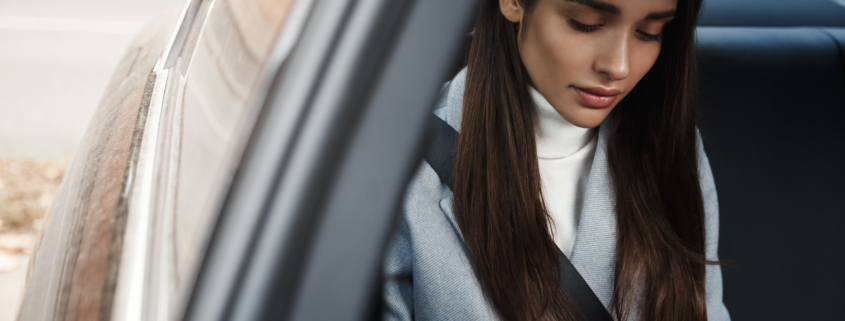What Happens If You Are a Passenger in an Uber Accident in Pensacola?
Ridesharing services such as Uber and Lyft have become an integral part of transportation in Pensacola, Florida. Whether it’s a ride to the airport, a business meeting, or a night out, residents increasingly rely on rideshare apps for their travel needs.
Locals and tourists alike often choose Uber or Lyft over driving themselves to and from establishments that serve alcohol. For instance, The Establishment 1898, a sophisticated social club, Pensacola Bay Brewery, a local favorite for craft beer, and Union Public House, a southern pub, are popular destinations where patrons might prefer to use a rideshare service for a safe and convenient ride to their home or hotel.
As ridesharing services integrate more deeply into the fabric of Pensacola’s daily life, it becomes increasingly important for passengers to be informed about what happens if they find themselves in an Uber or Lyft accident. From understanding the nuances of insurance policies to navigating the legal pathways for seeking compensation, the situation can be very complex.
Immediate Steps After a Lyft or Uber Accident in Pensacola
If you find yourself involved in a Lyft or Uber accident in Pensacola, it’s important to take the following steps:
Prioritize Safety and Medical Attention
- Check for Injuries: The first priority is to assess if you or anyone else involved in the accident is injured. Even if injuries seem minor, it’s important to get checked, as some injuries may not be immediately apparent.
- Seek Medical Attention: If there are any injuries, call 911 for medical assistance. Don’t hesitate to visit a hospital or a doctor after the accident, as this not only ensures your well-being but also serves as important documentation of your injuries.
Report the Accident
- Inform the Rideshare Company: Report the accident to the rideshare service through their app or customer service line. Both Uber and Lyft have in-app features to report accidents which will prompt their safety teams to respond.
- Notify Local Authorities: It’s important to report the accident to local law enforcement in Pensacola. A police report provides an official record of the accident, which is crucial for any subsequent legal or insurance claims.
Document the Accident
- Take Photos: If it’s safe to do so, take photographs of the accident scene, including the vehicles involved, any visible injuries, and the surrounding area. These photos can provide valuable evidence about the conditions and impact of the accident.
- Gather Driver Information: Obtain information from your Uber or Lyft driver and any other drivers involved in the accident. This includes their names, contact information, insurance details, and the make and model of their vehicles.
- Collect Witness Details: If there are witnesses, ask for their names and contact information. Eyewitness accounts can be pivotal in piecing together how the accident happened and establishing liability.
Understanding Uber’s and Lyft’s Insurance Policies
When you’re a passenger in an Uber or Lyft accident in Pensacola, it’s important to understand how the insurance coverage provided by these rideshare companies works. Both Uber and Lyft have distinct insurance policies in place to cover incidents that occur during a ride.
Uber’s and Lyft’s Insurance Coverage for Passengers
- Periods of Coverage: Both companies categorize their coverage based on different periods of a driver’s activity. When the app is off, the driver’s personal insurance is in effect. Once the driver turns on the app but has not yet accepted a ride, a lower level of coverage applies. However, from the moment a ride is accepted to the time the ride ends, both Uber and Lyft provide substantial insurance coverage that includes their passengers.
- Extent of Coverage: During a ride, both Uber and Lyft offer up to $1 million in liability coverage per accident. This coverage is designed to address bodily injuries and property damage for passengers, other drivers, pedestrians, or any other third parties affected by the accident.
How Uber’s and Lyft’s Insurance Work in an Accident
In the event of an accident, the insurance provided by Uber or Lyft is typically primary, meaning it takes precedence over any personal insurance that the driver or passengers might have. The $1 million liability insurance aims to cover medical expenses, lost income, and other damages resulting from the accident. Passengers are covered regardless of whether the Uber or Lyft driver or another motorist is at fault.
Comparison with Personal Auto Insurance Policies
- Primary vs. Secondary Coverage: Personal auto insurance policies usually act as primary coverage. However, in the case of Uber and Lyft, their commercial insurance is primary when the ride is in progress.
- Coverage Limits: Personal auto insurance policies often have lower limits compared to the $1 million coverage offered by Uber and Lyft during a ride.
- No-Fault Coverage: Florida is a no-fault state, which means that drivers must carry Personal Injury Protection (PIP) as part of their personal auto insurance. PIP covers the policyholder’s injuries in an accident, regardless of fault. However, in an Uber or Lyft accident, the rideshare company’s insurance can provide broader coverage that goes beyond PIP limitations.
Overview of Florida’s Laws Relevant to Rideshare Accidents
- Rideshare Regulations: Florida law treats rideshare companies like Uber as ‘transportation network companies’, subject to specific state regulations. These regulations cover aspects such as insurance requirements and driver background checks.
- Insurance Requirements: In Florida, rideshare companies are required to provide insurance coverage for their drivers and passengers once a ride is accepted, up until its completion. The companies are required to carry liability insurance of up to $1 million per incident.
Negligence and Liability in Uber Accidents
- Determining Negligence: Establishing who is at fault in an Uber accident can be complex. Negligence may fall on the Uber driver, another driver, the company itself, or a combination of parties. The determination of negligence is based on who acted carelessly or did not adhere to reasonable safety standards.
- Liability Issues: In some cases, liability may extend to Uber if it can be shown that the company’s policies or actions contributed to the accident. However, since Uber drivers are independent contractors, this can be legally challenging.
Challenges in Establishing Fault and Seeking Compensation
- Complex Insurance Situations: Navigating the insurance landscape post-accident can be complicated. Determining which insurance policy applies – whether it’s the driver’s personal policy, Uber’s policy, or a third party’s – requires careful analysis of the accident circumstances.
- Multiple Parties Involved: Rideshare accidents often involve multiple parties, which can complicate the process of establishing fault. Each party, including their insurance providers, may have their own version of events.
- Legal Nuances in Rideshare Cases: Rideshare accident cases can involve unique legal nuances that are not present in standard auto accident claims. This includes understanding the role of Florida’s no-fault laws and how they interact with Uber’s insurance policy.
Injured in an Uber Accident in Pensacola? Contact Whibbs Stone Barnett Turner, PA For Assistance
Ridesharing accidents can become complex legal cases, and if you have been involved in one and sustained injuries, it is important to speak with an experienced motor vehicle accident attorney right away. For strong legal guidance with Uber and Lyft accidents in the Pensacola area, call Whibbs Stone Barnett Turner, PA today at 850-434-5395 or message us online for a free consultation and case assessment.


